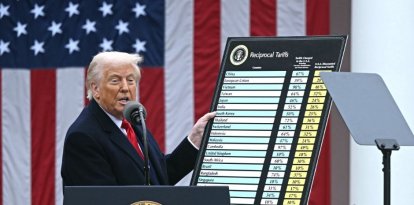Majority of members of Congress of foreign origin come from Cuba and Mexico
80 members of the Senate and House were born abroad or to foreign-born parents. Twenty of them represent the state of California alone.

The U.S. Capitol in Washington, D.C.
Congress is increasingly pluralistic in terms of the background of those who occupy its seats. According to the Pew Research Center, in both chambers, up to 15% of representatives and senators are immigrants, or are from families that come from abroad. Hispanics make up most of the diversity.
By the Center for Outreach and Studies' count, this number has grown steadily in recent years, but until House and Senate renewal, this growth has slowed. The number, however, has never been so high, and Cuba and Mexico are two countries that have given more foreign members of Congress to the Capitol.
In all, 80 representatives and senators are either foreign-born or have at least one parent of foreign nationality or born outside the United States. There are 61 in the House and another 19 in the Senate. They are much more numerous in the Democratic party, 60, than in the Republican party, 19.
Citizenship requirements
For the House of Representatives, one must be a citizen for at least seven years and reside in the state one represents. It is not mandatory to be born in the U.S.; naturalized citizens may run.
For the Senate, it is required to be a citizen for at least nine years and live in the state to be represented.
In both cases, naturalized citizens can be elected if they meet the time requirement for citizenship. It is not necessary to be born in the U.S., but it is necessary to have obtained citizenship before the required period.
According to inquiries by the Pew Research Center, which has investigated the origins of the members of Congress, 19 of them come from Mexico. The neighboring country thus becomes the largest contributor of foreign-born federal legislators or those with foreign parents.
Mexico is followed by another Hispanic country, Cuba, with seven members of Congress. Guatemala, the Dominican Republic, Peru and Colombia are the other Hispanic American countries on this list.
The rest of the members of Congress with foreign origins come from 31 other countries, among which Germany and India stand out.
Western states have more immigrant representation
According to Pew Research, 38 of the lawmakers who are foreign-born or who have immigrant parents represent western states. The state of California is the standout among them, with 20 foreign-born representatives. Next up are Florida (seven) and Illinois (six).
RECOMMENDATION





















